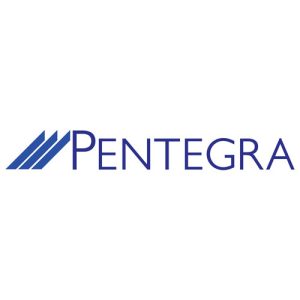Watch an Olympic gymnast compete in floor exercise, and it seems as if the routines are almost effortless. But years of practice and endless hours of perfecting moves creates this demonstration of strength and grace. Now compare a toddler’s tumbling maneuvers on the living room floor. While we may congratulate them with Olympic‑sized enthusiasm, we know that there may soon be a crash with the end table.
In some ways, plan sponsors who insist on administering every aspect of their retirement plan may be like our inexperienced toddlers: They may be good at running their business — but they may not be fully aware of the technical details and fiduciary risk involved when it comes to administering a retirement plan. By partnering with a fiduciary expert, plan sponsors can stay ahead of potential plan problems and ensure compliance with retirement plan rules and regulations.
Plan Fiduciary Basics
Because this is such a pivotal part of maintaining a retirement plan, we often revisit the importance of knowing — and fulfilling — plan sponsors’ fiduciary duties. Black’s Law Dictionary defines “fiduciary” as “one who must exercise a high standard of care in managing another’s money or property.” This may seem straightforward. But over the years, legal decisions and guidance from the IRS (and other federal agencies) have given us more detail about what this means in the context of retirement plans. In a nutshell, here are some of the fundamental tenets that plan fiduciaries need to know.
- Plan sponsors (employers) are always considered fiduciaries.
- Fiduciaries have a duty to administer a plan for the exclusive benefit of plan participants and their beneficiaries.
- Fiduciaries who violate their duties can be held personally liable for a breach.
- Fiduciaries may delegate certain duties (for example, day-to-day administration) to third parties.
- In the event certain responsibilities are delegated to third parties, plan sponsors still have the responsibility to prudently choose those service providers — and to regularly monitor their performance.
The fiduciary duty that a plan sponsor owes to plan participants is the highest duty in the law. It requires that plan participants’ interests are elevated above the interests of the employer. To ignore or minimize this requirement is to invite dissatisfied participants and possible sanctions from the Department of Labor and the IRS.
Reduce Fiduciary Liability by Delegating Responsibility
The potential liability for failing to meet fiduciary obligations can be substantial. But we don’t point this out to create undue concern. Instead, we believe that the surest way to help you avoid problems is to inform you about what you must do as a plan sponsor — and then to equip you with the tools to satisfy your responsibilities. There are a range of actions you can take. On one end of the spectrum, you or your colleagues could become retirement plan experts. This usually entails considerable time and resources. Sometimes larger companies hire workers who are dedicated to this function, perhaps in full-time human resources roles. But smaller businesses tend not to have highly skilled retirement plan experts on staff.
Another approach involves outsourcing all retirement plan administration. Third-party administrators (TPAs) can be hired to provide nearly all the services that are needed to effectively run a plan. This strategy can relieve plan sponsors from nearly all the daily administrative tasks that a plan requires. Still, plan sponsors cannot avoid their overall fiduciary duty to choose proper service providers — and to regularly monitor their work to ensure that they are adhering to the terms of their service agreements. And this brings up an important point: such agreements are critically important. They should be written in plain language and should clearly spell out precisely which services will be provided. Plan sponsors should consider walking away from any contract that they don’t understand or that the provider is unable to explain satisfactorily.
A third approach takes the middle ground between outsourcing everything and doing it all yourself. For example, some smaller employers might be quite good at onboarding new employees and may not need help with that. Or their payroll provider may offer some assistance by providing the employer with the information needed to properly enroll employees as participants when they become eligible for the plan. And some investment providers may supply recordkeeping services as part of their package. Each situation is different, depending on the needs of the employer. Plan sponsors may decide to seek outside help for only a portion of their required administrative duties.
Pentegra is uniquely positioned to help plan sponsors meet their fiduciary and administrative duties. If you would like to continue the conversation, please contact John Schafer, VP, National Leader, Financial Institutions Channel, at john.schafer@pentegra.com or (317) 506-6875.









